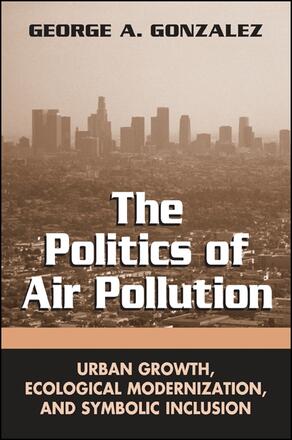
The Politics of Air Pollution
Urban Growth, Ecological Modernization, and Symbolic Inclusion
Alternative formats available from:
Argues that clean air policy is driven by locally oriented economic elites.
Description
Who has been at the political forefront of clean air policy development in the United States? In The Politics of Air Pollution, George A. Gonzalez argues that the answer is neither the federal government, nor environmental groups, but rather locally oriented economic elites in conjunction with state and local governments. These local growth coalitions, composed of mostly large landholders, land developers, and the owners of regional media and utility firms, support clean air policies insofar as they contribute to the creation of a positive investment climate and, in turn, bring about greater profits through increased land values and an expanded local consumer base.
George A. Gonzalez is Assistant Professor of Political Science at the University of Miami. He is the coeditor (with Sheldon Kamieniecki and Robert O. Vos) of Flashpoints in Environmental Policymaking: Controversies in Achieving Sustainability, also published by SUNY Press, and the author of Corporate Power and the Environment: The Political Economy of U.S. Environmental Policy.